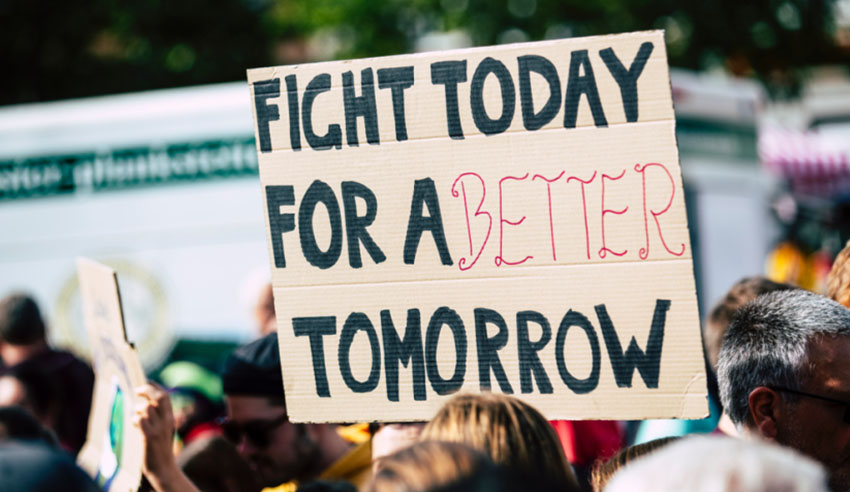There is and will continue to be value in protesting, either against unjust laws, for social good or for needed change. After the most recent controversy following a protest from students at a Sydney university, Protégé looks back at advice from the profession.

While protesting against the government’s recent higher education bill, cuts to funding, and job losses, students and staff at the University of Sydney were arrested, fined and, in some cases, physically removed by police. Following major coverage of the protest, people from all over Australia began to question whether the students were in the right.
“We strongly defend freedom of speech and support the right of our students and staff to express their views in a legal, safe and respectful way,” the statement read, adding that the university has not heard back from NSW Police following several attempts.Police officers violently force students from the road, throwing one young woman to the ground. pic.twitter.com/egb5DkIFyM
— Honi Soit (@honi_soit) October 14, 2020
“We will contact them again as a matter of urgency and express our serious concerns. We will also reiterate our offer to discuss different approaches that might avoid similar situations occurring at future events,” the university wrote, noting that they encouraged student representatives and staff unions to develop COVID-19 plans for future plans.
Speaking to Lawyers Weekly earlier this year, former High Court justice Michael Kirby encouraged law students to protest as much as they could while still in university. The law students today, he said, tend to be less engaged than his generation but said that there are many opportunities for them to protest for what they believe in.
“You can’t expect longstanding attitudes to change overnight, but they won’t change if you simply sit in your bedroom looking at your computer,” Mr Kirby said. “You have to mobilise opinion, and that includes through computers, through crowdfunding, and by speaking up for what you know is right [by attending a protest].”
The University of Sydney’s student newspaper Honi Soit has provided coverage of the protests, including footage of almost 100 officers sticking around the campus after the event ended to question students. A widely shared video shows riot police outside the university’s gates “roughly pushing” law professor Simon Rice to the ground.
Law Professor Simon Rice was roughly forced to the ground by police as he left the protest. 3 other fines took place alongside this. pic.twitter.com/yBQtYV4xhY
— Honi Soit (@honi_soit) October 14, 2020
In response, the Australian National University’s branch committee condemned police for their actions, adding that “attacks and intimidation” continue to be used against the students conducting peaceful, COVID-19 safe protests and teach-outs.
“The violent treatment of Professor Rice while he conducted distanced observation for the purposes of research is also utterly indefensible,” the university said when passing a motion. “The ANU Branch Committee calls for NSW Police to cease attacks on the intimidation of students and university staff, to apologise to those protesters and staff that they have harmed and to leave the campus immediately and not return.”
